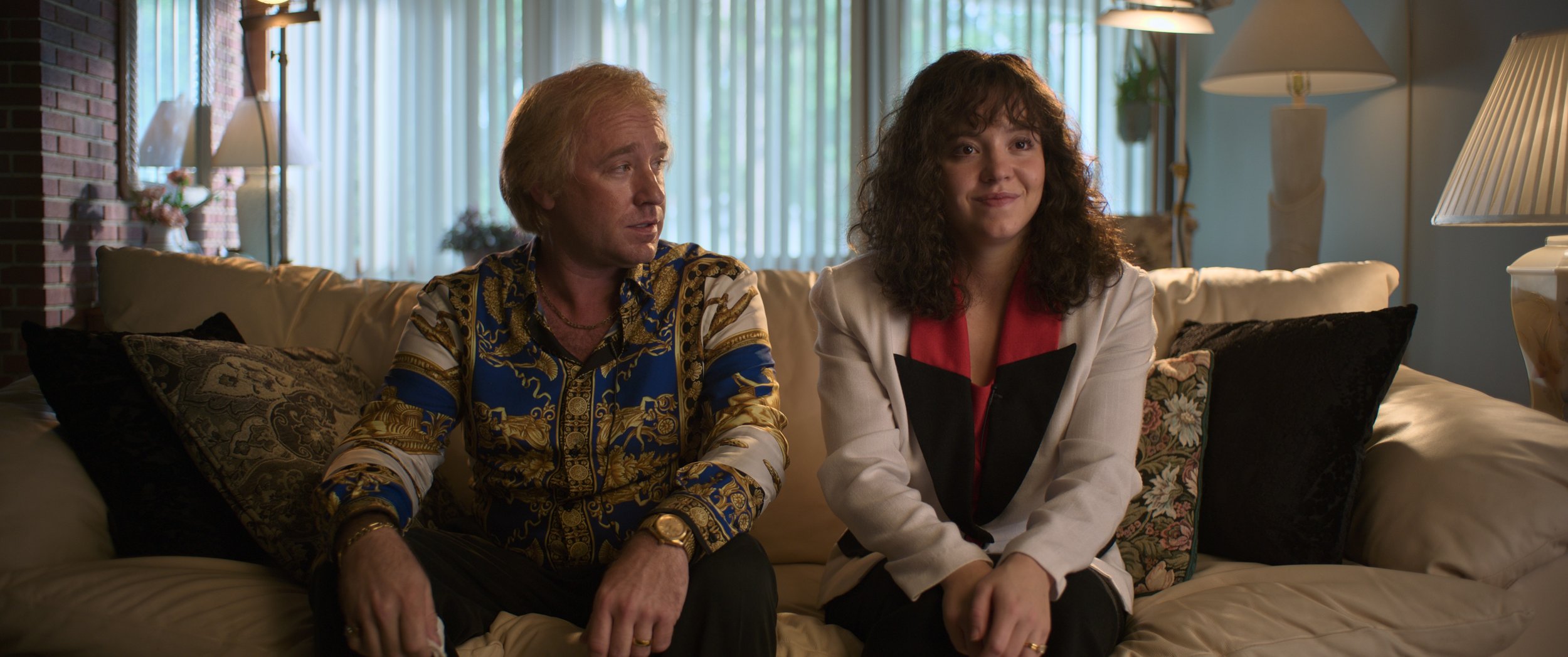David Michôd’s Christy tells the remarkable true story of Christy Martin, a woman who fought her way out of small-town West Virginia with nothing but grit, raw athleticism, and a will to survive. The film opens with Tears for Fears, an inspired needle drop that immediately sets the tone. What follows is an ambitious 135-minute biopic that delivers powerful performances and emotionally intense storytelling, even as it struggles with pacing and familiarity.
Sydney Sweeney anchors the film with a transformative performance that goes far beyond imitation. There are moments when she barely looks like herself, right down to her physicality and movement in the ring. She commits fully and moves like a fighter, capturing both Christy’s swagger and her vulnerability. Anyone insisting she is not delivering real work here is trying too hard to sound unimpressed. She is more skilled than many people give her credit for, and this is one of her strongest turns to date.
The supporting cast is surprisingly stacked. Merritt Wever and Ethan Embry appear as Christy’s parents, an unexpected yet welcome pairing. Ben Foster, nearly unrecognizable, is chilling as Jim Martin, the trainer who becomes her husband and eventually her tormentor. Foster has always excelled at playing characters you cannot help but hate, but here he reaches another level. His performance fuels the film’s most unsettling moments, especially in the second half where the story leans harder into emotional drama and real-life horror. Some scenes elicited audible gasps in the theater.
As a sports biopic, Christy hits many familiar beats. Fans of boxing films will recognize the structure, even if the film tries to keep things fresh with lively montage work featuring tracks like “Bust a Move,” an INXS cut, and a striking sequence set to choir music. The Don King era is recreated with flair, and the film occasionally switches camera mediums, bouncing between analog television textures and high-quality film. These touches make the boxing sections enjoyable, although they may leave some viewers wanting more depth in that part of the story.
Where the film truly lands is the emotional devastation of Christy’s personal life. The final stretch is gut wrenching, and the most harrowing scenes work precisely because Michôd refuses to sensationalize. The violence and control Christy endured are depicted with honesty and care, creating a portrait of survival rather than exploitation. It is here that Christy feels closest to something like I, Tonya, though the tone is far more raw.
At two hours and fifteen minutes, the film overstays its welcome. The first act is rough and the pacing throughout can feel uneven. After the emotional climax, the film loses some momentum, as if uncertain about how to bring Christy’s story to a close. Still, even with its flaws, the film remains compelling, especially for viewers unfamiliar with her story outside of Netflix’s Untold documentary.
Christy may not reinvent the boxing biopic, but it tells an important and heartbreaking story with conviction. Sweeney delivers awards-caliber work, Foster is terrifying, and the film’s emotional honesty carries it through its rougher patches. It is a shame that Black Bear Pictures’ first theatrical release will likely be underseen, because this is a film worth watching and talking about.
A good film, not a great one, but one with a story that stays with you long after the final bell.
Jessie Hobson



